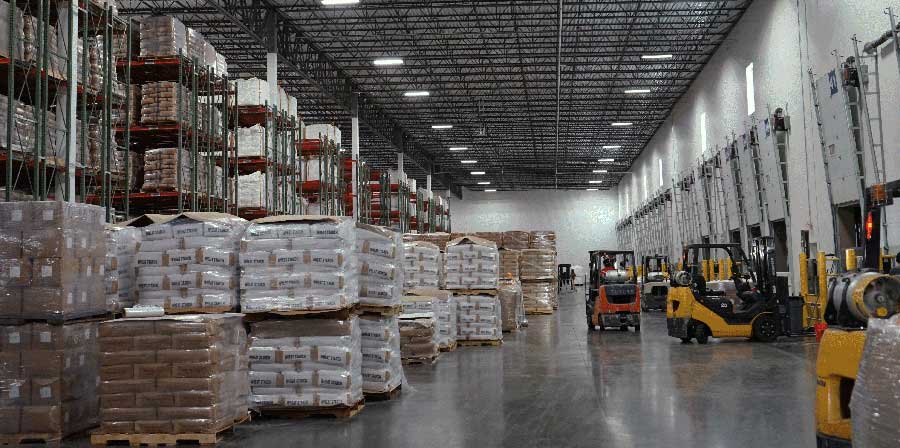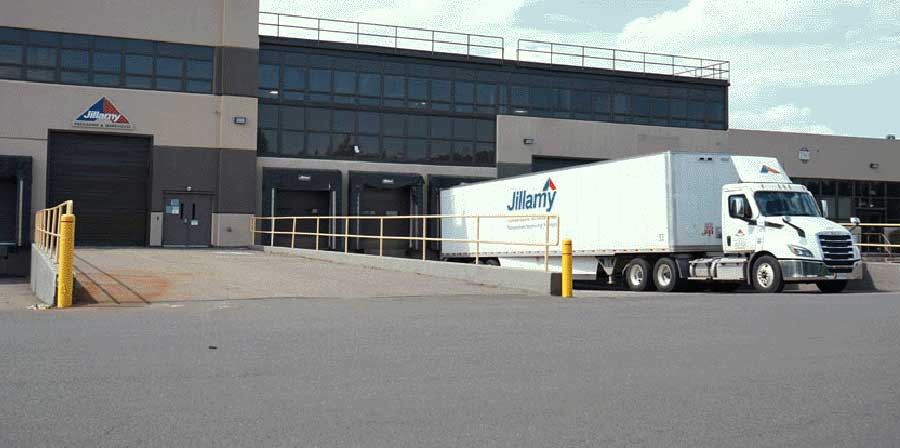In the world of shipping and logistics, efficiency is key.
One strategy that businesses use to optimize their operations is consolidated freight.
But what exactly is consolidated freight?
It's a method that involves combining smaller shipments into one larger shipment for transportation. This approach offers several benefits, including cost savings, reduced risk of damage, and improved efficiency.
In this detailed guide, we will explore the concept of consolidated freight, its benefits, and its comparison to alternative shipping approaches.
We'll also explore related topics such as cross-docking, warehousing, and their impact on supply chain performance and sustainability.
What is Consolidated Freight?
Consolidated freight, also known as freight consolidation, is a shipping method that combines multiple smaller shipments into one larger shipment.
This is typically done at a consolidation center or warehouse. Here, the smaller shipments from various shippers are grouped together based on their destination.
Once consolidated, these shipments are transported as a single unit to the destination area. Upon arrival, they are then deconsolidated and delivered to their respective recipients.
This method is particularly beneficial for small and medium-sized businesses. They often don't have enough goods to fill an entire truckload, making consolidated freight a cost-effective solution.
Key steps in the consolidated freight process include:
- Collection of smaller shipments from various shippers.
- Grouping of shipments based on destination at a consolidation center.
- Transportation of consolidated shipment to the destination area.
- Deconsolidation and delivery of shipments to their respective recipients.
Advantages of Consolidating Shipments
Consolidating shipments offers several advantages. These benefits can significantly impact a business's bottom line and operational efficiency.
Firstly, it can lead to substantial cost savings. This is particularly true for businesses that don't have enough goods to fill an entire truckload.
Secondly, consolidated freight can reduce the risk of damage to goods. This is because consolidated shipments typically undergo less handling compared to other shipping methods.
Lastly, consolidating shipments can lead to improved efficiency and better supply chain performance. This is due to the streamlined processes and reduced administrative burdens associated with consolidated freight.
Key advantages of consolidating shipments include:
- Cost savings
- Reduced risk of damage
- Improved efficiency and supply chain performance
- Cost Savings
One of the main advantages of consolidated freight is the potential for cost savings. By combining smaller shipments into one larger shipment, businesses can save on shipping costs.
This is because shipping rates are often based on the volume of goods being transported. Therefore, a larger consolidated shipment can be more cost-effective than several smaller shipments.
Moreover, consolidated freight can also lead to savings in terms of reduced warehousing needs and lower inventory carrying costs.
Reduced Risk of Damage
Another advantage of consolidated freight is the reduced risk of damage to goods. This is because consolidated shipments typically undergo less handling compared to other shipping methods.
Each time a shipment is handled, there is a risk of damage. Therefore, by reducing the number of times a shipment is handled, the risk of damage can be minimized.
Furthermore, consolidated shipments are often packed more securely to withstand the rigors of transportation, further reducing the risk of damage.
Improved Efficiency and Supply Chain Performance
Consolidated freight can also lead to improved efficiency and better supply chain performance. This is due to the streamlined processes associated with consolidated freight.
By consolidating shipments, businesses can reduce the number of deliveries they need to manage. This can simplify logistics and reduce administrative burdens.
Moreover, consolidated freight can also lead to faster delivery times, as consolidated shipments often bypass intermediate stops. This can result in improved customer satisfaction and better overall supply chain performance.
Difference Between Consolidated Freight and Less Than Truckload (LTL) Shipping
Consolidated freight and Less Than Truckload (LTL) shipping are two common shipping methods. However, they differ in several key aspects.
Consolidated freight involves combining multiple smaller shipments from various shippers into a single larger shipment. This strategic approach maximizes the utilization of truckload capacity and offers a cost-effective solution for businesses with smaller shipment volumes.
On the other hand, LTL shipping involves transporting shipments that do not require the full space of a truck. These shipments share the truck space with other shipments, but unlike consolidated freight, they are not necessarily combined into one larger shipment.
One key difference between the two is the handling of shipments. In consolidated freight, shipments are typically handled less frequently as they are transported directly to a central hub before being delivered to their final destination. In contrast, LTL shipments may be handled multiple times as they are often transferred between different trucks and warehouses.
Cross Docking in Consolidated Freight
Cross-Docking: Enhancing Efficiency in Consolidated Freight
Cross-docking is a common practice employed in consolidated freight to facilitate the direct transfer of goods from an incoming truck to an outgoing one, with minimal or no interim storage. This operation is typically executed at a cross-docking warehouse, where incoming shipments are swiftly sorted and loaded directly onto outbound trucks.
In a nutshell, cross-docking is a strategic logistics maneuver aimed at unloading goods from an inbound vehicle and promptly transferring them to an outbound vehicle. This approach significantly reduces the time goods spend in storage and minimizes the necessity for extensive warehouse space, emphasizing speed and efficiency in the supply chain.
The Advantages of Cross-Docking
Cross-docking presents numerous advantages to businesses. Primarily, it leads to a substantial reduction in storage and labor costs. By minimizing the duration goods remain in storage, companies can enjoy savings on warehouse expenditures. Additionally, the reduced handling of goods translates to lower labor costs.
Moreover, another key benefit is the acceleration of delivery times. By enabling goods to move seamlessly from inbound to outbound vehicles, cross-docking often results in shorter transit times, enhancing operational efficiency.

Sustainability and Environmental Impact of Consolidated Freight
Consolidated freight can have a significant impact on sustainability. By combining smaller shipments into one larger one, businesses can reduce the number of trips needed.
This can lead to a decrease in fuel consumption. It also results in fewer carbon emissions, contributing to a more sustainable supply chain.
However, it's important to note that the environmental impact of consolidated freight can vary. Factors such as the distance traveled, the mode of transportation used, and the efficiency of the vehicles can all affect the overall carbon footprint.
Therefore, businesses should carefully consider these factors when planning their consolidated freight strategy. They should aim to optimize their operations not just for cost and efficiency, but also for sustainability.
Full Truckload (FTL) vs. Consolidated Freight Shipping
Full Truckload (FTL) and Consolidated Freight Shipping are two common methods used in the transportation industry. Each has its own set of advantages and considerations.
FTL shipping involves transporting a large amount of goods that can fill an entire truck. It's often used when a business has enough products to fill a truck, or when they have high-priority items that need to be shipped quickly.
On the other hand, consolidated freight shipping involves combining smaller shipments from multiple shippers into one truckload. This method is ideal for businesses that don't have enough goods to fill an entire truck.
While FTL shipping can be faster and more direct, it may not be the most cost-effective option for smaller shipments. Consolidated freight, while potentially slower due to multiple stops, can offer significant cost savings.
In conclusion, the choice between FTL and consolidated freight shipping depends on the specific needs and circumstances of each business. It's important to consider factors such as shipment size, urgency, cost, and environmental impact when making this decision.
Streamlining Logistics: Jillamy's Consolidated Freight Solutions
Jillamy offers a comprehensive solution for consolidated freight services, providing businesses with a range of advantages that streamline their logistics operations. One key benefit is their extensive network of 13 strategically located warehouses, facilitating efficient cross-docking processes. This strategic placement minimizes transit times, reduces handling costs, and expedites the movement of goods throughout the supply chain.
Additionally, Jillamy's regional dedicated fleet ensures reliable and on-time deliveries within specific geographical areas. This dedicated fleet enhances flexibility and responsiveness, allowing businesses to meet the unique demands of different regions promptly. Whether it's delivering goods to retail stores or fulfilling specific customer orders, Jillamy's dedicated fleet provides tailored transportation solutions to suit diverse needs.
In addition to regional distribution, Jillamy specializes in retail distribution, offering dedicated lanes to ensure efficient delivery to stores. This specialized service is particularly advantageous for retailers seeking to optimize their supply chain and enhance customer satisfaction by ensuring products are readily available when needed.
Jillamy excels in transporting perishable goods, including groceries, with precision and care. Their expertise in handling temperature-sensitive items ensures that perishable goods reach their destination in optimal condition, minimizing the risk of spoilage and maximizing product quality.
Beyond domestic transportation, Jillamy also offers national and cross-border delivery services, facilitating seamless transportation across borders. Their extensive network and logistical expertise enable businesses to navigate complex international shipping processes with ease, ensuring compliance with regulations and timely delivery of goods.
In summary, choosing Jillamy for consolidated freight services empowers businesses to optimize their supply chain, reduce costs, and enhance operational efficiency. With a focus on strategic warehousing, dedicated fleet management, specialized retail distribution, and expertise in transporting perishable goods, Jillamy provides comprehensive solutions tailored to meet the diverse needs of businesses across various industries.
Conclusion: Optimizing Your Shipping Strategy with Consolidated Freight
By understanding the benefits and considerations of consolidated freight, businesses can make informed decisions that align with their operational needs and sustainability goals. This includes choosing the right partners, leveraging technology, and understanding the impact of regulations and global trade agreements.
In the ever-evolving world of logistics and supply chain management, staying informed and adaptable is key. Consolidated freight is just one of the many tools businesses can use to navigate this complex landscape and achieve their objectives.
Consolidated freight is a vital strategy for enhancing efficiency and reducing costs. Jillamy offers expert consolidated freight and volume LTL services, supported by a robust network of strategically located warehouses and a dedicated fleet. This ensures efficient cross-docking, reliable deliveries, and specialized services such as retail distribution and perishable goods transportation. To streamline your logistics operations and achieve your business goals, contact Jillamy for comprehensive and tailored shipping solutions.


